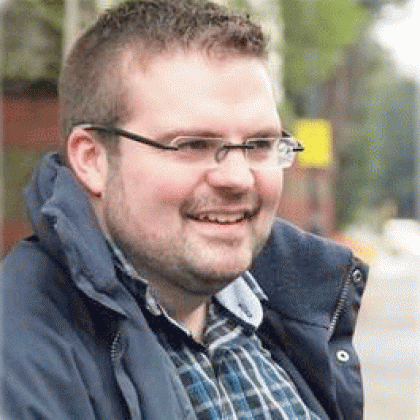The problem of religious evil
The 2014 Religious Studies Postgraduate Essay Prize was recently awarded to two co-winners: Daniel Kodaj, of the Central European University and Ryan W. Davis of Harvard University. In this blogpost, Daniel Kodaj provides a summary of his essay ‘The problem of religious evil’.
It is an important staple of contemporary anti-religious rhetoric that religion causes evil (see, for example, the views voiced by Christopher Hitchens here. Typically, these charges focus on the purported role of theistic belief in engendering war and terrorism, hindering intellectual progress etc. My paper asks whether God’s moral perfection is compatible with the idea that theistic belief causes evil. To answer this question, I situate the problem of religious evil in the context of the general problem of evil.
On the face of it, the facts of religious evil are sorely at odds with the hypothesis that a morally perfect and onmipotent creator wants to bring us into loving union with himself through religion. My paper claims that current theistic responses to the problem of evil do not solve this issue. For example, even if we accept that God cannot stop evil because humans have free will, it is hard to see why God would create a world where religion inspires us to even more evil instead of curing us out of it.
I offer a tentative response to the problem of religious evil by arguing that worlds with religious evil are better, from a providential standpoint, than worlds where the same kind of evils are all perpetrated by atheists if the following three conditions hold: (1) secular virtues are objectively more important than being religious, (2) salvation depends on secular morality, (3) perpetrators of religious evil do not, in fact, believe in God. I expect this solution to be controversial, but I hope to have shown that religious evil deserves attention in the debate on evil.
It is a great honour to be a co-winner of this prize. I’d like to thank the panel for their decision. I’m also grateful to Howard Robinson and Michael Griffin for initiating me into the philosophy of religion, to Marilyn McCord Adams and Robert Adams for helping me understand the problem of evil, and to Dean Zimmerman and the Central European University Foundation for making it possible for me to visit Rutgers University and the new Center for the Philosophy of Religion there while working on the paper.







I want full text
The link above takes you to the full text PDF of the essay, free of charge for a month. Let us know if you have trouble accessing it.